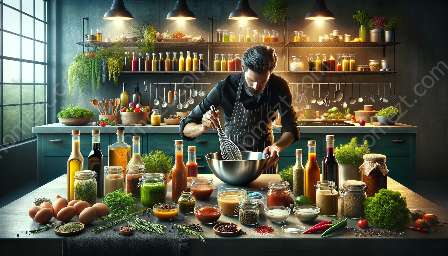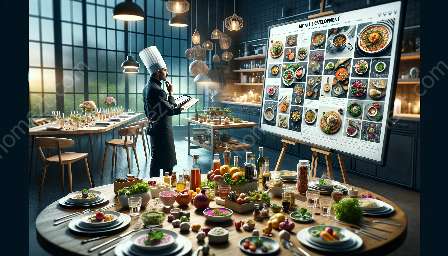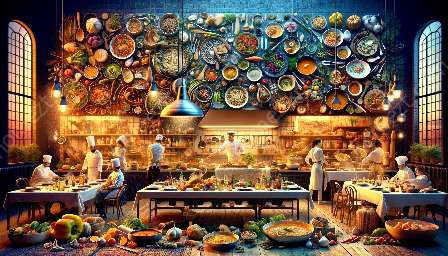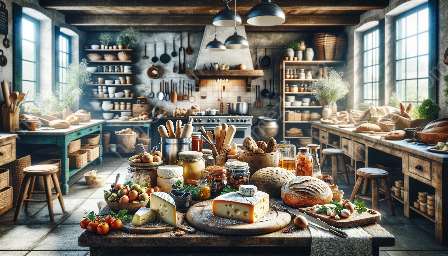Gastronomy is the study of the relationship between food and culture, art of food and dining. It encompasses various aspects such as history, culture, and culinary arts. In this topic cluster, we will explore the fascinating world of gastronomy and its strong connection to the culinary arts and kitchen & dining. From the historical roots of food to modern gastronomic trends and techniques, we will delve into the art and science of food and dining.
The History of Gastronomy
Gastronomy has its roots in ancient civilizations where food was considered not only a source of sustenance but also as a form of art. The history of gastronomy is rich and diverse, reflecting the cultural, social, and economic aspects of different societies throughout the centuries. From the sophisticated feasts of ancient Rome to the intricate culinary traditions of China, gastronomy has evolved alongside human civilization.
The Art of Culinary Innovation
Culinary arts play a pivotal role in the world of gastronomy. Chefs and culinary experts constantly innovate and experiment with flavors, ingredients, and cooking techniques to create exquisite dishes that tantalize the senses. The art of culinary innovation is a dynamic process, influenced by cultural exchange, technological advancements, and modern trends in food production and consumption.
Exploring Cultural Gastronomy
One of the most captivating aspects of gastronomy is its connection to cultural diversity. Each culture has its own unique culinary heritage, traditions, and rituals that reflect its identity and values. From the spicy and aromatic dishes of India to the delicate and nuanced flavors of Japan, cultural gastronomy offers a window into the soul of a society.
The Science of Flavor and Nutrition
Beyond its artistic and cultural dimensions, gastronomy also encompasses the scientific study of flavor and nutrition. Understanding the chemical composition of ingredients, the sensory perception of taste, and the nutritional impact of food is essential in the modern gastronomic landscape. This scientific approach has led to innovations in molecular gastronomy and the creation of healthier, more sustainable culinary practices.
The Future of Gastronomy
As we look to the future, gastronomy continues to evolve and adapt to the changing global landscape. The rise of fusion cuisines, the embrace of sustainable and ethical food practices, and the integration of technology in food production are reshaping the gastronomic world. The future of gastronomy holds exciting possibilities, as it continues to inspire creativity, cultural exchange, and culinary excellence.


































